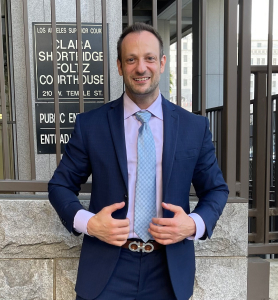
California DUI allegations are bad enough, but a DUI arrest is worse. However, some courts provide lenient sentences to some who deserve it. One of the most lenient sentences a court could give you is a court order to complete alcohol and drug education and counseling programs instead of jail time. Do you want to avoid jail time? This blog will inform you of some things you should know about a DUI school in California.

An alcohol and drug education program allows those caught and convicted of DUI offenses to avoid jail time. It is a much more lenient and arguably more effective intervention by the state to educate offenders to regain control of their lives. These are usually offered to first offenders that have shown remorse and are committed to changing their lives.
These DUI classes aim to reduce the number of repeat DUI offenses by focusing on the root of the problem and overcoming the challenges of alcohol and drug use. Another purpose of this DUI education program is to satisfy the DUI penalties imposed by law and give you a higher chance of renewing your license after a license suspension.
However, remember that the law does not recognize online DUI classes. You must go to a licensed and accredited DUI school by the state.

A DUI school is not for every DUI conviction. A first offender and other exceptional cases are the only ones given this kind of sentence privilege. Here are some offenses where you may avail the benefit of alcohol and drug education sentences.
Under Vehicle Code 23152(a), it is "unlawful for a person who is under the influence of any alcoholic beverage to drive a vehicle." In other words, if the authorities catch you displaying the symptoms of intoxication, you can be charged with drunk driving even if your blood alcohol level is above the legal limit of .08%.
However, under this section, you will be charged if the breath or blood test returns positive with a blood alcohol concentration above the legal limit.
If caught with a BAC above .08, you will be charged with driving with an excessive BAC. This misdemeanor offense is punishable by fines, probation, DUI school, license suspension, usage of an ignition interlock device, jail time, and work release.
One can commit this crime by being caught while actually intoxicated and when the driving ability is impaired. However, for police to be able to convict you of this crime, BAC police officers must measure your BAC through a breath test and a blood alcohol content test.
This law penalizes as an infraction anyone under 21 years of age to operate motor vehicles if they have a BAC of .05%. Violation of this law can result in fines, driver's license suspension, and mandatory alcohol education programs.
Under the law, adult DUI laws impose penalties when the consumption of alcohol impairs the person's driving. However, drivers under 21 have a higher standard.
A "wet reckless," otherwise known as wet and reckless driving, is the name given to a crime where a person charged with a DUI pleads guilty or no contest to a plea agreement. Prosecutors agreed to drop a more serious DUI charge as long as the defendant pleaded guilty to this lesser offense.
The law gives this benefit to help DUI violators serve a lesser sentence than they intend to receive.
This crime results from a Tahl waiver and plea bargain to charges of DUI. A Tahl waiver is when defendants waive some of their constitutional rights. On the other hand, a plea bargain refers to an agreement between the prosecution and defense where the defendant admits to a lesser crime.
A warning, though, a wet reckless plea bargain will still include a note on the defendant's criminal record that they were involved in alcohol and drug use. Also, a wet reckless is different from a dry reckless, where the primary difference between the two does not include a note referencing the involvement of alcohol and drugs. Dry reckless only happens when a defendant pleads for a lesser crime that does not involve alcohol or drugs.
Learn More: Steps to Take After a DUI in Los Angeles

Enrolling in a DUI school would greatly benefit defendants who a court has given this privilege. It allows defendants to minimize the impact of a DUI conviction against them as long as they complete DUI school programs.

The duration and cost of a DUI education program would largely depend on the driver's specific DUI offense.
If you are guilty of a prior DUI or "wet reckless" conviction because your DUI defense lawyer negotiated a plea deal, the court will order you to complete a 12-hour program as a condition of this lesser charge.
Teenagers under 21 who get their first DUI in California may sometimes be able to take part in the same program. For this program, you must attend DUI classes weekly for 2 hours for 6 weeks.
If your Blood Alcohol Content (BAC) is less than 0.15 percent and this is your first DUI conviction in the last 10 years, you must attend DUI school for 3 months.
This 3-month DUI program is the most typical DUI class length for DUI offenders in California. People convicted of drug DUI and alcohol DUI will have probation. You will generally attend 10-15 classes totaling 30 hours of counseling program and education throughout the 3 months.
You may attend DUI school for 9 months if your BAC was over 0.20 percent or if you refused a chemical test after being detained. These courses typically last 9 months and include 60 alcohol and drug education hours.
Second and subsequent DUI offenders must undergo an 18-month multiple offender program. The DUI education program requires 52 hours of group counseling, 12 hours of education about alcohol and drugs, 6 hours of community reentry monitoring, and individual interviews every 2 weeks for the first year.
For third-time DUI offenders and those who have done it before, a county can choose to offer 30-month programs. Requirements include 78 hours of the group counseling program, 12 hours of alcohol and drug education, 120-300 hours of community service, and close, regular personal interviews.

The cost of DUI classes depends on who you go to and where you go.
Counseling and instruction are both included in California DUI classes. The majority of the counseling is in groups. However, some are one-on-one interviews.
The education component includes instruction on drug misuse, "problem" drinking, and California's DUI laws. These are usually through:
Counselors do not expect participants to actively participate in the group counseling sessions or the instructional components of the California DUI school. They must, however, fully participate during individual interviews.
Although the DUI school that provides DUI classes doesn't have the highest level of security, the law nevertheless compels offenders enrolled in the DUI class to follow its rules. Because it is a court-ordered process, attending lessons is mandatory, although participants have some freedom to skip a few sessions.
The number of DUI classes a student can skip varies depending on the program. Participants can miss a limited number of sessions for each program. But if a DUI offender skips a session, they must make it up with another one, or the provider won't provide them a certificate of completion after the time frame.
For instance, participants in a 12-hour course for 6 weeks can skip 2 sessions, but those in a 30-month course can miss 15 days. Students who miss more lectures can be expelled from the DUI school, which might result in probation, fines, or license revocation.
Failure to finish DUI school might result in significant consequences such as:
Learn More: I Got a DUI in California: Am I going to Lose My Nursing License?
Offenders must maintain their sobriety while attending a court-ordered DUI instruction program. If a student is detected being under the influence of alcohol or drug abuse in the class, the program may:
A participant in a California DUI school program may also be dismissed if:
Learn More: Can I become a US citizen if I am accused of DUI in California?
California DUI School is an alcohol education and prevention program mandated by the courts and the California DMV. If a motorist gets convicted of a DUI or "wet" driving conviction, he must attend California DUI school.
The state of California requires DUI education program providers to be licensed. Over 250 service providers operate almost 500 state-licensed programs in California. Licensed providers offer only in-person programs.
Online DUI classes available over the internet DO NOT fulfill the standards of California's DUI Program.
However, the California Department of Health Care Services (DHCS) permits selected licensed providers to operate through telehealth during COVID-19. Most of these driving under the influence program will not accept a motorist unless he has:

There are many reasons why a person might enroll in a DUI course instead of going to court and having a judge decide the outcome of that case. It is pretty reasonable for anyone looking at the consequences of a potential DUI charge. If you have been caught drunk driving by law enforcement, your first course of action will probably be talking to a Los Angeles DUI Lawyer—especially if you have never experienced an arrest. An experienced DUI attorney will advise you on your options and help you handle legal matters.
Hurwitz Law Group is a criminal defense law firm in Los Angeles that has dealt with various DUI cases, and we feel confident we can help you get the result you hope to get. Getting your case taken seriously by law enforcement is just the start. Hurwitz Law Group can always be with you to ensure we meet your needs. Call us today at (323) 310-9677 or complete our contact form to schedule a free consultation and start working together immediately!
Search
Categories